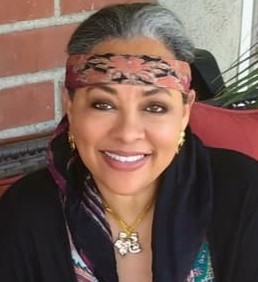What The World Of Work Needs Now
Leadership can only be sustained if we choose to practice soft skills
Posted on 01-03-2023, Read Time: 6 Min
Share:

One of the undeniable beauties of living and performing in the world of work today is also one of the main challenges: being able to not only cope with but thrive in changing circumstances.
Successfully leading any workforce in any industry and in any part of the world today, requires a set of wakeful behaviors that every leader could develop.
The primary behavior is mindfulness. This can be cultivated by engaging in regular reflection on decisions made, actions undertaken, and the outcomes generated. Reflection requires some quiet time. It can happen through, for instance, silent contemplation, insight meditation, journaling, or nature walks. The practice of regularly reflecting will result in increased insights, potentially leading to more considerate future decisions, and most likely, more compassionate actions. It remains a fact that decisions are always made with insufficient information, and that hindsight yields numerous overlooked aspects. This is where mindfulness as a foundational practice becomes invaluable, as it takes into account experiences, outcomes, and insights from prior, sometimes seemingly unrelated circumstances, that widen the awareness periphery.
An equally critical behavior is creativity. While this may sound more like a skill to be developed, creativity is exuded through what we do rather than through what we think. Many people may think that creativity is not for everyone, but with some effort, we can all cultivate creative moves in our operations. Creativity is not only important in dealing with major changes, but even more in maneuvering through the many unexpected turns of professional performance. There is always competition on the horizon: not just from individuals, but also from other entities, and even from societal or natural developments that can pitch our current operations into obsolescence in a heartbeat. Behaving with creativity can become second nature, and it grows on us if we allow it to. The first few steps on every path may be uneasy, but practice makes perfect, and creativity is no exception to that rule.
Then there is the behavior of authenticity. Today’s workforce is smart, quick-witted, and insightful. Our team members can easily distinguish sincerity from deception. And once caught hiding or bending the truth will lead to an irreparable loss of trust. Even though authentic behavior may reveal our vulnerability, especially in conflict situations, it remains the better and most courageous course of action under all circumstances, and it will be more appreciated and respected in the end.
Support is another behavior that will enhance appreciation from stakeholders for a leader. Being supportive requires cautious judgment. Sometimes it will place you between a rock and a hard place, meaning that support of one side may come across as a rejection of the other. This is one of the many challenges that leading others brings, and it requires the earlier mentioned practice of mindfulness, along with a lot of courage, to do the right thing.
Flexibility is yet another behavior that leaders in today’s world cannot ignore. Being flexible may sometimes require leaders to reevaluate their own values and perhaps their entire stance toward performing. One of the most prominent areas of flexibility leaders are confronted with today is the option for employees to work remotely or on location. The recent pandemic has revealed possibilities we did not consider or thought to be unattainable before. And while there is a lot to be said about the organic spontaneity of performing and socializing on-location, there is also a plethora of advantages to be mentioned in allowing employees to perform remotely if their work allows it. The best approach for work situations that can be done in multiple settings may be a hybrid modality, where people rotate their presence at work, and get the opportunity to work from home at least part of the time. Practicing this kind of flexibility may lead to greater levels of employee fulfillment and job satisfaction, and grant them a feeling of being appreciated.
Even though the list of behaviors and skills is far from complete here, the last one to mention in this limited space is communication. What we say and how we say it can make a difference in how we are perceived as a leader. Communication requires all the behaviors mentioned before: it takes mindfulness, creativity, authenticity, support and flexibility to successfully communicate, especially when the message is not one others would like to hear. But even an unpleasant message can be accepted with grace if we communicate it in a proper way, leaving people their dignity and showing respect in how we approach them.
Leadership is initially acquired and adorned by knowledge of the field in which we perform, but it can only be sustained if we choose to practice the soft skills laid out above. Not every leader has to be an expert in the technicalities of the position. That’s what we have our high-skilled team members - engineers, accountants, financial analysts, information system experts and others - for. But keeping the team motivated, productive, and satisfied requires behaviors of an interpersonal nature that is intuitive and built on our innate humaneness. And that is what it all boils down to.
Author Bio
 |
Joan Marques is an author, educational and social entrepreneur, who currently serves as Dean and Professor of Management at Woodbury University’s School of Business. She teaches, presents and writes on topics related to diversity, equity and inclusion (DEI) and ethical leadership. Her research and practice-based insights have been widely published in scholarly as well as popular journals and magazines. She has authored/co-authored and edited more than 35 books. Her most recent single-authored book is, “Leading with Awareness” (Routledge, 2021). Connect Joan Marques |
Error: No such template "/CustomCode/topleader/category"!

